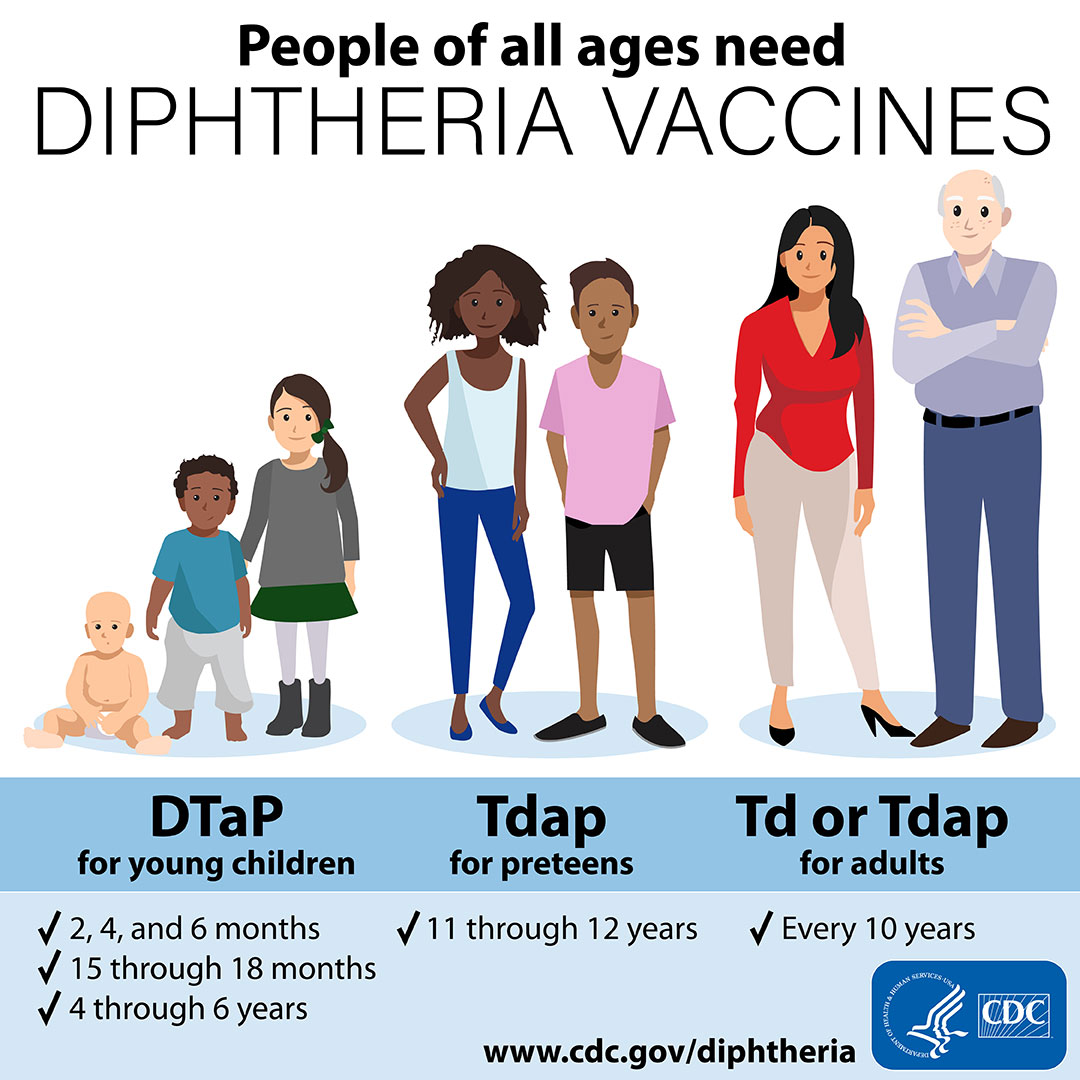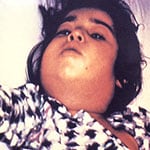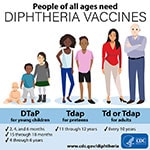Prevention
The best way to prevent diphtheria is to get vaccinated.

This graphic highlights CDC’s diphtheria vaccination recommendations for young children, preteens, and adults.
Vaccination
CDC recommends diphtheria vaccination for people of all ages.
Learn more about diphtheria vaccination.
Antibiotics and other preventive measures
CDC recommends that close contacts* of someone with diphtheria receive antibiotics to prevent them from getting sick. Experts call this prophylaxis (pro-fuh-lak-sis).
In addition to getting antibiotics, close contacts of someone with diphtheria should be
- Monitored for possible illness for 7 to 10 days from the time they were last exposed
- Tested for diphtheria with a sample collected from the nose and throat
- Given a diphtheria booster shot if they are not up to date with their vaccines
Health departments investigate each case of diphtheria to identify all close contacts and make sure they receive the right preventive measures.
Footnote
*Close contacts are defined as all household members, people with a history of frequent, close contact with the patient, or people directly exposed to secretions from the suspected infection site of the patient.



